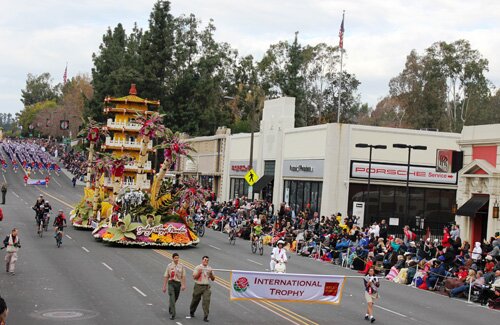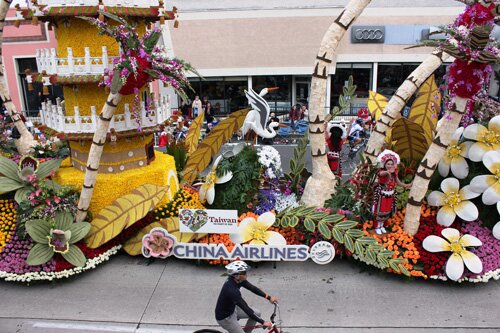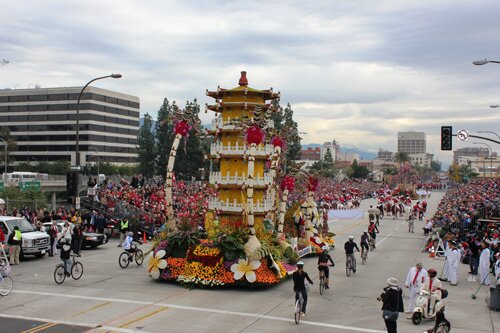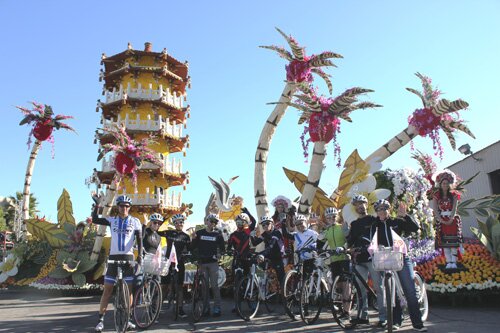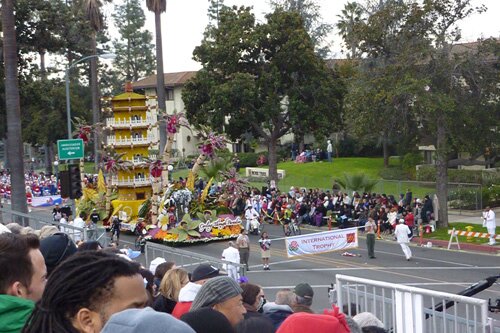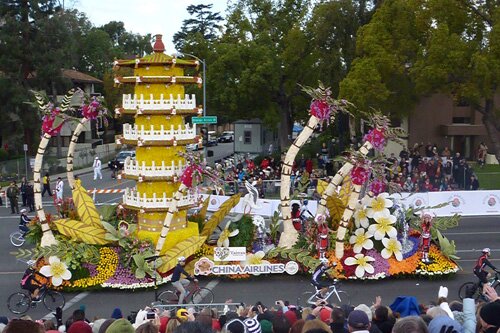President Ma Ying-jeou’s administration has been fond of using the term “soft power” to identify the values of Taiwan since he took office in 2008.
“Soft power” is a concept developed by Joseph Nye of Harvard University to describe a nation’s ability to use its way of life, cultural assets or public diplomacy as a tool of persuasion, rather than choosing to compete on a political, military and economic level.
Soft power matters
“Soft power” has a special significance to Taiwan. To show “soft power,” you don’t need to hold a high academic degree, which has traditionally been considered important, if not superior, by the ethnic Chinese. You can still be a high achiever in non-academic areas (such as sport, hospitality, and social movements) even with a lower level of education. On several occasions, President Ma cited Kevin Lin, the ultramarathon champion, Wu Pao-chun, master pastry chef, Yani Tseng, the top seeded women golfer, and Chen Shu-chu, the vegetable vendor and philanthropist. In the past, only successful entrepreneurs, scientists, and academic scholars were praised as role models by the head of state.
The influence of “soft power” allows Taiwanese people to pause and reflect on the long-term pursuit of increasing GDP. Rapid economic growth has alerted the people of Taiwan to be more concerned about quality of life, artistic innovation and cultural refinement.
More importantly, under the pressure of strong competition from China in terms of politics, economics, military power, and international status, Taiwan has to find a value system capable of strengthening the self-confidence of its people.
Unreal anxiety
Columnist Yang Tu wrote in the Taipei-based China Times that current exchanges and interaction between Taiwan and China are at an all-time high. However, there is a growing concern in Taiwan that the island will become “a second Hong Kong”.
Since 2008, there have been several break-throughs in relations between Taiwan and China, including: direct flights, reducing trade and investment barriers, and allowing mainland Chinese students and tourists to visit Taiwan. As cross-strait interaction is gradually strengthening, Taiwan’s people are getting to know the mainland and its people better. However, the better that Taiwanese people understand China, the deeper their anxiety, Yang noted.
There has been a marked change in the dynamic between the two sides since Taiwanese residents were first allowed to visit relatives in China in 1987 – the first move to liberalize exchanges with the mainland since 1949, according to Yang’s analysis.
From an economic perspective, China relied on Taiwanese investment in the early days and ultimately fully accepted Taiwan’s capital and human talent. Now that China has become the second largest economy in the world, the largest global consumer market, and is the world’s chief economic driver, Taiwan is increasingly relying on China economically.
In terms of military strength, the two sides were basically relatively balanced in the past. Taiwan’s modernized armaments were not inferior to those of China. But now, even the United States and Japan are somewhat concerned about China’s military build-up. It is not surprising that Taiwanese people feel very insecure by contrast.
“In the face of the rise of China, it is not without reason that Taiwanese people are worried of becoming ‘a second Hong Kong’,” pointed out Yang. “Indeed, Taiwan is not Hong Kong. The most obvious difference is that Hong Kong has no democratic system. After democratization in the 1980s, Taiwan has twice experienced a change of ruling political parties, has established a consensus of democratic values, and has accumulated enough experience and dynamic energy to cope with the rise of social movements. This is the most fundamental difference between Taiwan and Hong Kong,” and “Taiwanese have formed a sense of self-identification based on Chinese culture and a Taiwanese consciousness. This is different from Hong Kong which returned to China from British colonial rule in 1997, and lacks a long-term and self-conscious cultural movement.”
Yang said that although the concern about “becoming a second Hong Kong” is exaggerated, it shows that Taiwanese people are worried about their excessive economic dependence on China, fearing a loss of the freedom of speech, their democratic system, and even their self-identity. These fears are not without basis, but have been formed from observing Hong Kong’s experience since 1997.
Ranking high in life-satisfaction surveys
Since 1980, Taiwanese people have developed a pride in their export-oriented economic miracle. However, in 2008 when the global financial tsunami started, Taiwan suffered a sharp drop in exports. Even though the situation improved in 2011, the European debt crisis negatively impacted the Taiwanese market. All this financial turmoil has resulted in a shift in the value structure of Taiwan’s people.
Awakening News Networks reported that what Taiwanese people want is not just the pursuit of business success or expanding their wealth, but increasingly how to live a meaningful life, how to spend time with family, a desire to improve the quality of life in their communities, as well as the pursuit of social justice. “In an economic environment that can not be improved and where frequent bad news is experienced, stable happiness has become a basic demand of most Taiwanese people now.”
The Taipei-based China Times pointed out in its New Year’s Day editorial that over the past ten years, the most criticized topic is the vicious fighting between political parties. The blue camp (ruling KMT) and the green camp (opposition DPP) attack each other, seriously upsetting the normal functioning of the Legislature.
In the authoritarian era before the lifting of martial law in 1987, the government tried to control everything, and was totally unwilling to contemplate the existence of non-governmental organizations (NGOs). At that time, any NGO was considered as a potential threat to the government. Therefore there was a serious lack of NGOs to foster social cohesion in Taiwan.
But in the past decade, Taiwan’s politics has been extremely polarized, thus providing an opportunity for social movements to emerge, and form NGOs. In this way a new social order is gradually formed, according to the paper.
Now there is a boom of NGOs and religious groups in Taiwan, with about 40,000 NGOs and more than one million volunteers quietly dedicating their time and efforts. They supplement the lack of government resources and formal education, improve the quality of life for Taiwanese citizens in every corner of the island and become a part of everyday life in Taiwan.
The United Evening News reported that at the end of 2012 the U.S. Gallup poll announced its global happiness rankings. Abandoning traditional indicators of happiness such as GDP, education, and longevity, the poll measured “positive emotion” across 148 countries. Taiwan ranked 39th, the highest rating of the four Asian Little Dragons.
When The Economist’s “The World in 2013” ranked 80 countries according to where would be the best place to be born, Taiwan took 14th place based on various quality-of-life indices.
The United Evening News reported that Pai Hsiu-hsiung, chairman of the Taiwan Social Welfare League, said that Taiwan’s economy has been stuck in the doldrums in recent years, but the people are generally happy. Neighborhoods, families, and friends have developed a corporate social function by providing mutual assistance to each other to maintain a certain level of life satisfaction.
A learning journey for all Chinese
The China Times said in a comment that visitors from mainland China, Hong Kong, Singapore and other Chinese communities have noted a special social order has developed in Taiwan. No matter how crowded, Taipei Metro passengers always line up patiently to board trains, and always leave seats for those in need. Several major cities in Taiwan are promoting a campaign dubbed “keep-trash-off-the-ground” (namely, every evening residents of each city deposit their household waste at the designated times and points, where it can be collected by a garbage truck). This policy has resulted in a significant improvement in the city’s environment, reducing the quantity of garbage and realizing environmental protection goals by increasing recycling. These actions do not rely on government oversight or legal punishment, but build on the basis of spontaneous social action.
The Sing Tao Daily, a major Chinese language newspaper in the US, pointed out in an editorial that the evolution process of Taiwan’s social values has not followed the direction of a certain political party’s propaganda, but has been developed through an awareness of people’s participation and involvement and looking for solutions to solve social justice issues since Taiwan’s economic development reached a certain level.
The paper stressed that as the modes of Taiwanese thinking and mobilization are no longer following the instructions of political parties, their concerns are not limited to political issues, but extend to all levels of society. In 2012, there were several movements, including opposition to nuclear power plants and media monopoly. The leaders of these movements were not just a few organizations, but increasingly included students and scholars committed to giving a voice to vulnerable sectors of society.
Keeping the reins on China
The Washington Times recently summed up the relationship between Taiwan and China as “a small island in the shadow of a giant neighbor that claims its territory, Taiwan nonetheless holds a key to shaping China’s meteoric rise.”
Lung Ying-tai, Taiwan’s minister of culture, told the paper that “A democratic system with guaranteed freedom of expression has given rise to a creative and culturally vibrant society in Taiwan.” He said, “Taiwan is a center of gravity for the Chinese diaspora, especially on the cultural level, where the island’s vigorous book and movie industries often publish works banned on the mainland.”
Taiwan has repeatedly served as a stimulus for China to transform, from the patterns of economic development, democratic experience, even civil society consisting mainly of the middle class. As some Taiwanese people treasure their existing life-style and worry about “Taiwan being another Hong Kong”, many mainland Chinese people are willing to embrace Taiwan’s values, and to admire Taiwan’s democracy, freedom, and pluralism. At a time when China is intensifying its development efforts by building more skyscrapers, a high-speed rail network, aircraft carriers and maintaining double-digit economic growth, Taiwan has provided unlimited inspiration and encouragement for the mainland in how to develop its civil society and soft power.

